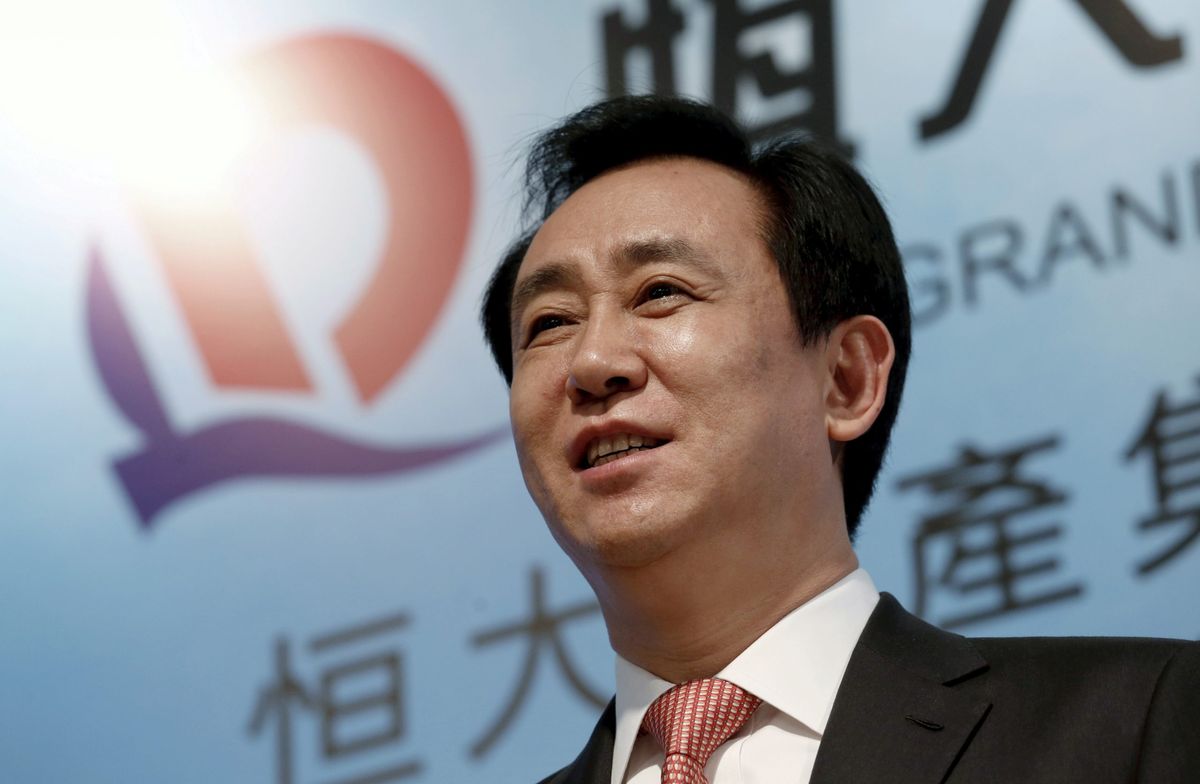Who is the founder of Evergrande, Xu Jiayin?

A few minutes every morning is all you need.
Stay up to date on the world's Headlines and Human Stories. It's fun, it's factual, it's fluff-free.
By 2017, Evergrande was considered the largest real estate developer in the world, and Xu’s net worth was estimated to be at US$45.3 billion.
- It has been nearly one month since Xu Jiayin (許家印), or Hui Ka Yan in Cantonese, stepped down as chairman of his company, Evergrande Real Estate Group.
- Evergrande was the largest property developer in China, and Jaiyin was the golden child who started it all with little to nothing to his name at the beginning.
- But now, based on current estimates, the company is the most indebted developer in the world with over US$300 billion in bad debt – debt it probably can’t pay anytime soon.
How did Xu get his start?
- Xu was born to a rural family on October 9, 1958, in Juaigang Villiage in Taikang County, Henan. “In school, all I ate was sweet potato and steamed bread,” said Xu back in 2018.
- His father was a former soldier that participated in the second Sino-Japanese war, and his mother died of sepsis when he was eight months old. Raised by his grandparents, Xu took on odd jobs such as, at one point, shoveling manure and working in a cement factory.
- He eventually worked his way into the Wuhan University of Science and Technology, and after graduating in 1982, he served as the director of Wuyang Iron and Steel Company.
- Both his university tutor Meng Xiankun and his supervisor at the steel factory explained that Xu was always good with people. Meng explained in 2010 that during the time that Xu was appointed the class health commissioner, which involved trying to persuade classmates to clean, " … he never complained,” Meng said in 2010, adding that he was good at “finding allies."
- His supervisor on the otherhand explained, “He’s good at his job, down-to-earth, hardworking, very clever, good at dealing with people.”
- After serving various leadership roles within industrial companies, Xu eventually decided to start his own company in 1996 called the Evergrande Group.
How did Xu find success with Evergrande?
- At the start of his career, Xu was seen as a classic rags-to-riches, Cinderella story, with the company seeing massive growth over two and a half decades.
- By 2017, Evergrande was considered the largest real estate developer in the world, and Xu’s net worth was estimated to be at US$45.3 billion, according to Forbes.
- Crowned the richest person in Asia, Xu’s life was completely different from the one he started with.
- And, he let the world know.
How did Xu’s image public image change?
- Called “belt brother,” after wearing a gold belt buckle with the Hermès logo on it while attending China’s annual legislative conference, Xu’s public image began to change.
- “Xu is also one of those people Beijing now finds distasteful – flashy and over the top,” explained Dexter Roberts to The Guardian, a senior fellow at the Washington DC-based Atlantic Council Asia Security Initiative.
- Part of that public perception shift was due to how fast the company was spending money. For example, the company dipped its toes into sports after Xu acquired China’s largest football club: Guangzhou FC.
- Not only did Evergrande buy a football club, but the company also acquired a private jet estimated to be worth more than US$45m, and Xu himself purchased a US$60 million superyacht named “The Event.”
- “Xu is a colorful figure. He lived an extravagant lifestyle that is now frowned upon by Xi as he kicks off his ‘common prosperity’ campaign,” Roberts. “For a long time, Evergrande’s business model, borrowing large sums of money and aggressively selling apartments that have not even been built, seemed like a smoking gun.”
Where did it go wrong?
- While Xu may have a bit of a Cinderella story, the clock struck midnight and Evergrande and Xu’s fortune began to collapse.
- Evergrande accumulated a significant amount of debt because they kept developing the real estate market in China but weren’t using their own money, explained Dr. Tenpao Lee, a professor of economics at Niagara University in New York to TMS.
- “For example, they used a little bit of money to acquire land … and they use a down payment from the buyers and then borrow money from the bank and then acquire more land.”
- But the problem is that the industry started being a bit too overdeveloped, with an oversupply of construction projects and less demand, meaning that the prices started to fall, which meant that Evergrande had less money coming in and so less cash to pay off their liabilities.
- It wasn’t just Evergrande’s wealth that began to fall. Xu’s once-great wealth of US$45.3 billion has dropped nearly 82%, and as of October 2021, according to Bloomberg Billionaires Index, it now sits at US$8.21 billion.
- Xu stepped down as chairman of the company back in August with little notice or warning.
What’s next?
- It’s hard to say what comes next for Xu, considering that he keeps his personal life fairly private despite flashy appearances.
- For example, on July 1, as his company was facing mounting debt repayments, Xu was reportedly seen at celebrations marking the centenary of the Chinese Communist Party, looking relaxed, wearing a navy-blue suit paired open-neck shirt while mingling with power brokers.
- Despite coming a long way from his rural upbringing, the former chairman of Evergrande still has a long way to go as the company continues to face seemingly insurmountable financial hardship.
You drive the stories at TMS. DM us which headline you want us to explain, or email us.







Comments ()